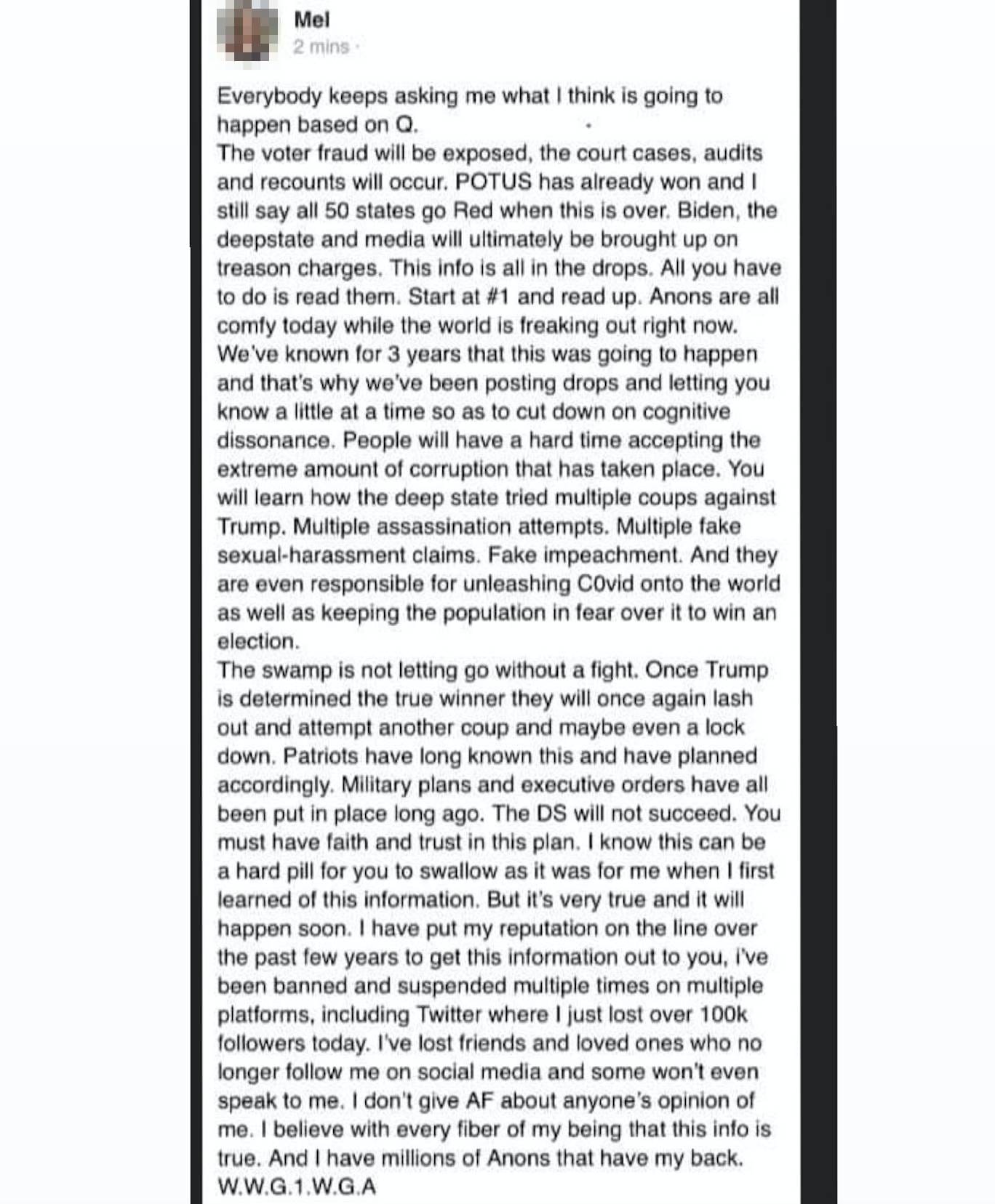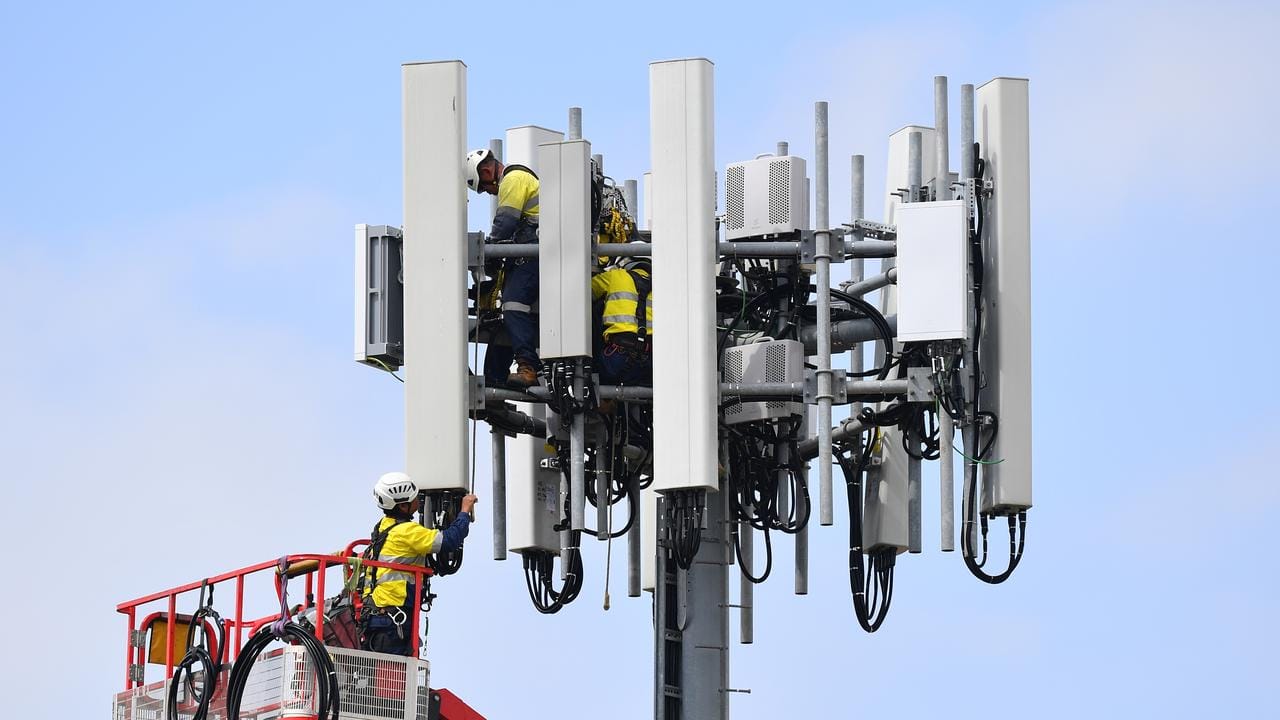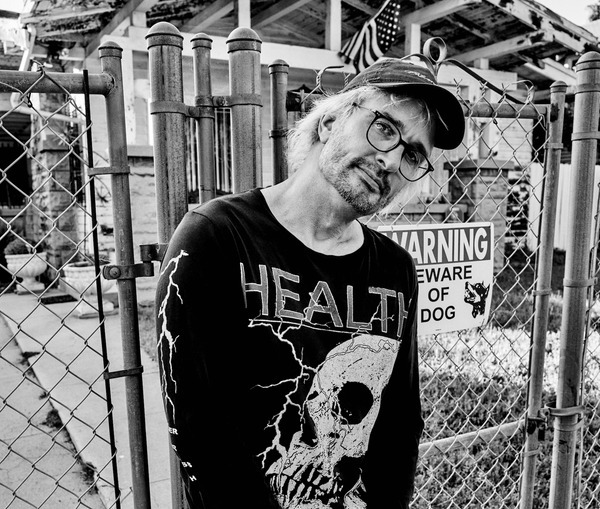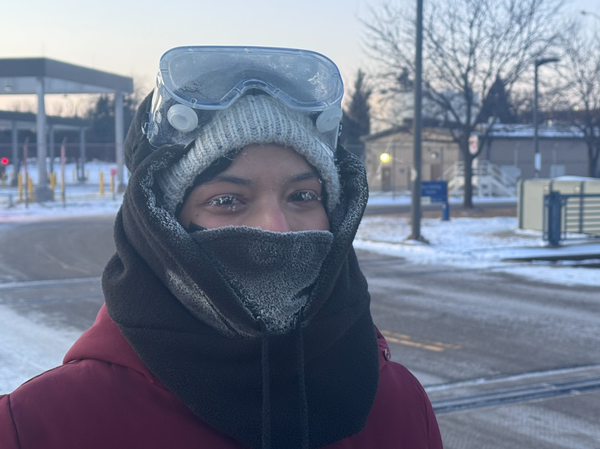A therapist's view of conspiracy theories
Who better to talk to about disappearing down rabbit holes than someone who's dealing with them in their day job?

Hey, friend.
I’ve been seeing a therapist lately about stuff. The brain, the heart, the soul — it’s all gotten a bit beaten up by 2020.
I know it’s a huge privilege I get to see a therapist, and a lot of people who need to see one don’t get to.
After my last session, I went out to the west coast and climbed a big hill. I think sometimes a view like this can really help.

I got to thinking how I’d like to get a therapist’s view on all this conspiratorial junk going on this year. To sort of wiggle and poke into the psychological wormholes going on in people’s psyches.
Because the junk keeps on coming.
Whether it’s hippie festivals like Luminate listing David Icke and Pete Evans as inspirations, or the QAnon crowd freaking out since Trump lost the election:

Yikes.
Strangely, as I was mulling this idea over, a psychological therapist reached out to me with the same idea!
Paul Wilson — a therapist in Auckland, New Zealand — has an active interest in what makes conspiracy theories live and breathe.
We chatted over email for a bit, then he agreed to answer a bunch of my questions for Webworm.
It’s a pretty dense and long conversation — but I think it provides some really valuable insight into what is perhaps going on in people’s minds, and how to deal with friends and whanau who have fallen down the rabbit hole.
We talked for ages, so I’ve split it into two newsletters. Part II soon.
A conversation with Paul Wilson, psychotherapist.
Just as a general question, with this 2020 going on — are you getting an increase in people wanting help, who are anxious or worried about the world or their own personal situation in it?
Yes, very much so. After the first lockdown ended, the number of people reaching out for help surged upwards and it has stayed that way. And it’s not just me — all of the therapists I know are finding the same thing.
But it’s not just people with anxiety about COVID and the changes in the world. Sure, that is a part of it, but it’s smaller than you might imagine. Rather, I’m finding people are coming forward for help with all the wide variety of issues that people seek therapy about, just at an increased rate.
I think that events like the pandemic interrupt our ‘everyday mode’ and force our shared existential concerns up into the forefront. So we are left to confront issues like mortality, isolation, freedom and meaning — things most of us normally try to distract ourselves from thinking about too much.
But with the lockdowns, all our usual distractions and comforts are not as available: work, outings, friends.
This impacts some people more than others. Some people have had a lot of time on their hands to ruminate and have tuned in to those uncomfortable feelings about parts of their life or relationships that aren’t working for them. Reaching out for therapy is one of the responses people have to that distress.
And embracing conspiracy theories is another.
Do you see a correlation between those sorts of conversations you're having, and the paranoia we’re seeing in the world at the moment in response to conspiratorial ideas around COVID-19, 5G and that sort of thing?
Definitely.
I see paranoia and conspiracy theories as two closely related psychological phenomena, as do the social science researchers who study conspiracy theories.
Both are underpinned by what academics call ‘delusional ideation’: false beliefs which are persistently held onto or elaborated on despite simpler explanations or direct evidence to the contrary.
There is a lot of overlap as many committed individual conspiracists hold paranoid fears (they’re trying to muzzle or assassinate me!) and many paranoid individuals often fear various conspiracies (e.g. evil humans, lizard-men, demonic tormentors or alien abductors).
But there are differences, too.
Conspiracists fixate on hidden malevolent groups that are undermining society or harming innocents (especially children). For example, they make claims of mass harm rather than claims about being targeted personally, like someone who is paranoid would.
More importantly, since paranoid individuals are more fearful, they tend to withdraw from conflicts, whereas conspiracists tend to engage and fight back, doing things like organising protests or attacking infrastructure which is far more worrying for society.
Now, when I mention researchers, I should point out that it’s only in the last decade or so that researchers have really started paying attention to conspiracy theories.
Before then, like everyone else, academics saw these fringe eccentric folks who were obsessed with all manner of strange beliefs as being essentially harmless and hence largely ignored.
That’s definitely changed now with a dawning realisation that conspiracies are a serious and growing public health threat. Initially, health researchers were concerned about things like AIDS denial and anti-vaxxer conspiracies.
But COVID and 5G conspiracies have metastasised into something even more virulent and dangerous.
We can’t just sit on the side-lines and let more and more people fall down the rabbit holes.
It’s great that we’re starting to talk more about how conspiracy theories ‘work’ but I’d really like that conversation to be wider in the media. This is important as a proactive way of inoculating the public against conspiracy thinking.
The “infodemic” concept is very true — conspiracies are viral information infections that infect and impair their vulnerable hosts.
So we need fatally weakened conspiracies we can expose people to, that function as vaccines to produce conspiracy antibodies.
One really good way to do that is to talk about past conspiracies that no-one alive believes now.
Back in the early part of the 20th century, polio outbreaks were blamed on electrification in Ontario (5G, anyone?) and later on rumoured German spies in New Zealand (“China virus”, anyone?)

The more I wrote about conspiracy theory culture, the more I understand you can’t talk anyone out of it with facts. With QAnon especially (the likes of Pizzagate, underground tunnels packed with trafficked children being farmed for adrenochrome, Bill Gates wanting to kill us all, government takeovers) facts are entirely useless, as the narrative shifts daily. On top of this, speaking out against it just means you're a shill, so there is this built in element that defeats debunking in the first place. So — how do you talk to people who have fallen down the rabbit hole?
One of the core features of delusional ideation is that the more you attack or directly refute it, the more they will marshal their defences to resist.
And they’ve got a lot more ‘face’ invested here than you so their cognitive motivation is strong and they will often just flatly contradict or criticise you, or elaborate their beliefs to absorb and neutralise your critique.
Now, it’s OK, important even, to let them know you think and see things differently. That’s just being honest.
But it’s all in the tone. Be interested. Be curious. Ask questions. Let them explain.
This communicates respect and they’re more likely to reciprocate that respect and listen to you in return.
Try to find common ground you can agree on, parts of their beliefs that you can validate: “Yes, I agree. Big pharma are capitalist institutions first and foremost.”
This builds trust. Do that before you start offering your differences: “But I‘m not so sure about… I see things this way…”
By taking an inquisitive and humble stance, you avoid putting your ego (the need to be right) on the line which makes the whole process much easier on you, too. It really helps to model how you can tolerate ambiguity and uncertainty, rather than leaping to (false) certainty as conspiracists tend to.
Think of it as a version of the Golden rule: be the person you would like to be debating with, and they are more likely to follow your lead.
Ideally, you want them to enjoy talking with you and the gentle respectful challenge and exchange of different perspectives. After all, they really like talking about these topics and most people who disagree just blow them off.
Stay calm and remain friendly. Take a break if it’s getting too much for you or for them.
This is a marathon, not a sprint.
And you’re just doing your part in the relay, planting little seeds of doubt that may one day blossom into deeper reflection with someone else.
I view this conversational process as akin to the difference between Aikido and Karate.
In Aikido, you aim to blend your energies, stay connected to your partner and remain flexible. You don’t aim to hurt your opponent as well as ensuring you don’t get hurt yourself. Pain only creates distance and disconnection which is not your goal here.
The fact is that we are not easily persuaded by people who we feel look down upon or hate us. We are far more persuadable by people who we feel respect and like us.
Then when they gently point out inconsistencies or things we hadn’t considered, we’re actually willing to reflect on them and take them seriously.
And most importantly, don’t gloat or play gotcha. If you make someone emotionally ‘pay’ for any concessions they make, you may win that battle but you’ll have lost the war.
What do you NOT do when talking to a family member or friend who suddenly believes things that are clearly not true?
Don’t damage the bond you have with them by shaming, humiliating, insulting or losing your temper with them.
If you become someone who largely causes them emotional pain, why would they want to keep talking to you? And once communication is lost, it can be hard to restart.
Accept that this is a highly emotional process for both of you. It’s completely understandable to feel shocked, exasperated and infuriated when someone close heads down the rabbit hole.
Conspiracist and paranoid individuals project those very feelings into others with their demeanour and the accusations that you’re the bad or foolish one. Don’t buy into that process and feed that vicious circle since it only functions to increases shame, anger and disconnection.
If things are looking to go off the rails, a tactical retreat and distraction onto a safe and mundane topic is relationship-preserving. “That’s nice. Can you pass the potatoes?” Even “What about this weather?!” might do in a pinch, but possibly not for a climate denier.
I know this is all far easier said than done.
The desire to fight to ‘get back’ the familiar person you care about can be quite intense. After all, it’s not some stranger with peculiar ideas that you don’t have to interact with again – it’s a significant change to a relationship that mattered to you.
It’s not really possible to be dispassionate — it stings as we feel devalued.
It may help to realise that underneath your shock and angry feelings are often fear and sadness at the potential loss. You’ve likely been abruptly cast into the grieving process: initial denial and disbelief, then anger, fear and sadness.
Acceptance is way down the track. So get some support. Find someone else to talk to and process the welter of feelings so you can then relate to your budding conspiracist with a full emotional tank. And keep the big picture and the long game in mind.
As a psychotherapist, I view the underlying issue here to be deepening shame.
Shame is arguably the most powerful human emotion and we seldom talk about it in the West.
We’re ashamed of shame and we pretend it doesn’t exist.
In English, the word shame tends to imply serious disgrace but as an emotion, shame exists on a continuum that ranges from slight discomfort and awkwardness up through embarrassment to profound humiliation. Shame remains the only emotion we associate with death — mortification — and that’s no accident.
Humans are born so dependent (we can’t feed ourselves, or move away from danger) that the loss of a loving bond with our caregivers literally means death.
That emotional intensity never leaves us, even as adults, despite all our praising of independence and rationality. So when an important relationship or social bond is threatened, whether it’s by action or neglect, shame is what we feel.
It’s the painful warning signal that flares up to make us pay attention to something deeply important and to motivate us to protect and repair that social bond. It’s just how we’re wired.
I think it helps to be aware of the emotional forces at work when someone close goes down the rabbit hole.
Shame is likely already abundant, and we need to hold onto ourselves to avoid making things worse by adding even more shame to the process.
“Shame is arguably the most powerful human emotion and we seldom talk about it in the West.”
I really liked Paul’s insights, and something about his thoughts on shame got to me. He’s so, so right. No one wants to feel that emotion, and we’ll do anything to get away from it.
If we have people in our lives that are deep into bad ideas - we’ve got to be civil. And kind.
There’s a Reddit sub I love called QAnon Casualties. It’s a place former QAnon types, or friends of QAnon types, can share stories about being deep down the rabbit hole. And stories of clawing their way out.
As I reflected on my conversation with Paul, this newish post resonated with me. It’s a happy one.
I’m not sure what good sharing this post will do but I feel like something clicked into place in my brain tonight and I’d like to share with this subreddit. I just stumbled across it tonight and, browsing through your posts, I felt a lightbulb went off.
I believe I've just now realised how deeply linked all of my problems, anxieties and depression over the past 4-5 years are to me falling down Q-related rabbit holes online (MGTOW, Pizzagate, sam Hyde/mde, etc etc).
These are insidiously dark corners of the internet and I had no clue how cult-like all of this shit was until just now.
I have nothing else to share other than it feels like a million pound weight has been lifted off my chest and I’m seeing things clearly for the first time in so long.
Now, I need to do a lot of work to put the pieces of my life back together and repair fractured relationships with friends, family and my amazing girlfriend. I can’t believe people put up with my for this long.
First step is probably therapy and we’ll just have to take things from here but I'm so unbelievably grateful to all of you and so happy that this subreddit exists and that I found it tonight.
This Q shit is absolutely life-ruining... it reaches so far and corrodes everything. The motif isn’t just disillusionment with political stuff, it’s an inability to trust anything. Your entire grip on reality slips and breaks and you don't know what’s up or down anymore, and at least with Q they seem to have an understanding of “what’s really happening” and of course there's the whole grand appeal of buying into the good vs evil storyline, and who doesn't want to be on the side of good?
I wanted to feel special, like I was the good guy who was actually seeing things clearly for what was really happening in the world, and no one else could see it — either because they were dumb or worse yet because they were “a part of it.” Insanity. I was just addicted to feeling special and smart and morally superior.
I'm almost in tears right now putting all these pieces together. Just thank you so much.”
Talk soon,
David.




